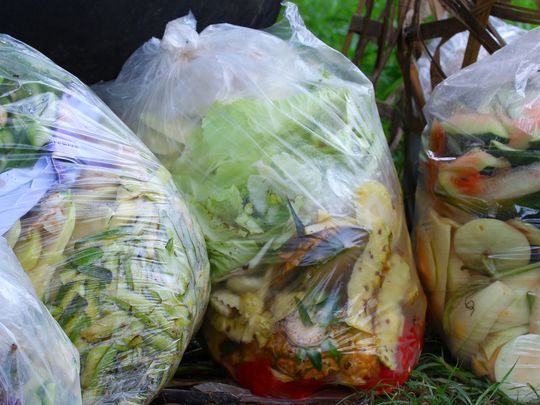
Dubai: Chef Laila Fathalla, a United Nations Environment Programme advocate for reducing food waste, has disclosed that food waste amounts to an estimated 1.3 billion tonnes annually worldwide.
According to the United Nations Food Waste Programme, Saudi Arabia ranks at the top globally, accounting for up to 50 per cent of the waste.
Abdul Rahman bin Abdul Mohsen Al Fadhli, Saudi Minister of Environment, Water, and Agriculture, affirmed these findings, acknowledging the grave cost of food waste to the Kingdom at SR40 billion annually. He highlighted that the rate of food wastage exceeds 33 per cent, a statistic that underscores the need for immediate and concerted efforts to tackle this issue.
A study by the Saudi Grains Organisation (Sago) last year highlighted the financial impact of food wastage in the Kingdom, amounting to SR40.4 billion annually based on consumer spending.
The study found that 4.06 million tonnes of food, or 33.1 per cent of targeted commodities, are wasted each year, with an average individual contribution of about 184 kilos of food waste.
The research, covering all regions of the kingdom, showed that vegetable waste alone exceeds 335,000 tonnes annually. Specifically, waste tallies include 38,000 tonnes of zucchini, 201,000 tonnes of potatoes, 82,000 tonnes of cucumbers, 110,000 tonnes of onions, and 234,000 tonnes of tomatoes.
The study’s sample of 30,800 revealed significant losses in staple foods, including 917,000 tonnes of flour and bread, 557,000 tonnes of rice, and 22,000 tonnes of sheep meat wasted each year.
Additionally, there are considerable losses in camel meat (13,000 tonnes), other meats (41,000 tonnes), and poultry (444, 000 tons), with fish waste reported at 69, 000 tonnes annually.
Notably, the volume of date waste stands at 137,000 tonnes, with general fruit losses at about 608,000 tonnes, including 69,000 tonnes of oranges, 12,000 tonnes of mangoes, and 153,000 tonnes of watermelons.
How to minimise wastage
Meanwhile, chef Fathalla has urged a collective effort to foster a culture of moderation and reduce waste.
She suggested practical measures such as cooking food in quantities that meet a family’s needs, purchasing food sensibly without excess, and donating surplus food to those in need.
Additionally, she advised placing newly bought food items behind older ones in the refrigerator to prevent the latter from expiring unused.
Saudi Arabia, a country of around 32.2 million people, hosts a large community of expat workers.
According to the 2021 Food Sustainability Index (FSI), conducted by Economist Impact with the support of the Barilla Foundation, the countries with the best performance in managing food loss and waste include Canada, Italy, Germany, Japan and the Netherlands.






